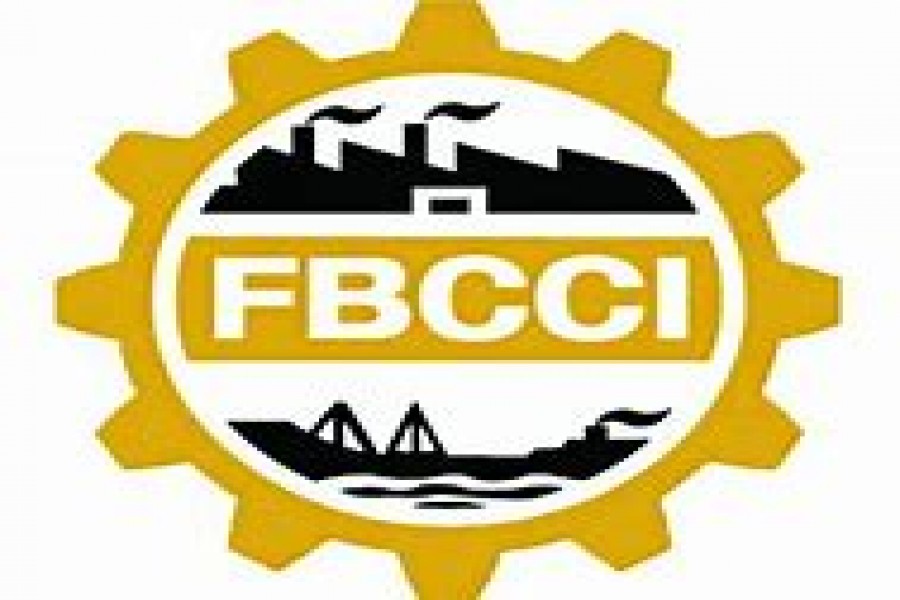FBCCI President Fahim in a webinar
Investment in Bangladesh will enhance bilateral trade opportunities with Qatar

Published :
Updated :

Federation of Bangladesh Chambers of Commerce and Industry (FBCCI) said Bangladesh and Qatar should look forward to enhancing diversified engagements in trade considering Bangladesh’s highly potential investment ecosystem including economic zones with tax and tariff incentives.
“We hope potential investors from Qatar would continue to consider Bangladesh’s investment potential in energy, power, infrastructure, technology, halal ecosystem, green renewable energy, start-ups, innovation knowledge and resource share for complimentary cooperation,” Sheikh Fazle Fahim, president of the FBCCI said on Wednesday.
He was addressing a webinar titled “Bi-lateral and Synergistic Opportunities between Qatar and Bangladesh” jointly organized by Bangladesh Forum Qatar and Doha Bank on the day.
Fahim said, “Bangladesh has a vibrant domestic market of 160 million. We have market access through multilateral South Asia Free Trade Agreement (Safta) market access of 1.8 billion in South Asian Association for Regional Cooperation (Saarc). Everything but Arms (EBA) has duty-free and quota-free (DFQF) market access to the European Union, India, China, Canada, Australia, New Zealand, Asia Pacific Trade Agreement (APTA) and preferential access to a number of additional markets with a competitive edge in production.” Japan External Trade Organisation (Jetro) study finds Bangladesh as a top destination for Japanese investments in the Asia Pacific.
Mentioning the two countries’ long-standing relationship and engagements in service, energy partnership, and human development, he opined that there is room for a reasonable balance of trade expansion for diversifying trades such as export of FMCG, agro-processed goods, leather, footwear, pharmaceuticals, ceramics, and ICT.
He highlighted Bangladesh’s ministry of finance’s policy interventions to address Covid-19 pandemic by prioritizing government expenditure due to a downward trend in economic activity, measures to increase money circulation, social safety net programmes such as food aid to 45 million people, cash transfer to 5 million families, Bangladesh Bank measures of quantitative easing to increase liquidity in the banking sector, 1% interest rate waivers for two months on all loans, deferment of all loan payments without penalty till September and interest rate blocks allowed breathing space for enterprises of all sizes and sectors while securing financial institutions investment which is to be paid back through restructuring as economy recovers, 50:50 matching funds refinancing for stimulus and credit risk guarantee for MSME loans were all-out support to facilitate banking sector to execute stimulus packages for MSMEs, agriculture, export and to the large sectors.
“This year, as the second level of intervention, all income taxes were reduced in the national budget including corporate tax reduction of 2.5%. A combination of all these measures spearheaded by Prime Minister Sheikh Hasina, we believe, will allow us to sustain the rest of this year and recover in 2021 and 2022.”
Emphasizing the prospect of investment in Bangladesh, he said despite the pandemic, Bangladesh managed GDP growth of 5.2%, a 5.4% in remittance, and a 10% foreign reserve growth in the fiscal year 2020.
“Most of the multinational companies operating in Bangladesh, it is their top five performing operations in the world. Qatar sovereign fund management knowledge transfer, private sector long term project financing, trade financing at low-interest rates, foreign direct investment in diverse sectors, innovation, academia, institutional engagement with FBCCI may be explored as bilateral value chain initiative (BVCI) for Bangladesh market, export to Qatar, GCC and beyond.”
Naser Ezaz Bijoy, country chief executive officer of Standard Chartered Bank Bangladesh, stated that the investment potential in Bangladesh is the best-kept secret of Asia.
He highlighted six drivers of Bangladesh’s economic growth: apparel industry, commerce, remittance, power generation, infrastructure, and digital space, and said in the last 12 years, Bangladesh had delivered a 400% growth and their operation is the most profitable bank in Bangladesh.
“Investment in government bond is an opportunity because yields are much better in Bangladesh as a currency is quite stable. Capital market, where Qatar is quite liquid, Qatari banks and other financial institutions can invest,” he said, adding that double taxation awareness treaty would help Qatari investors get maximum benefit.
Ashud Ahmed, Ambassador of Bangladesh to Qatar, who was also present in the webinar, said the relation between Bangladesh and Qatar is traditionally based on labours.
“Bangladesh government has been providing excellent facilities and incentives for the prospective investors from various countries of the world, and Qatar can look into Bangladesh… Bangladesh itself is a big market and the bridge between South Asia and South-East Asia.”
The authorities concerned of both the countries sat in several discussions to diversify the relation keeping the labour trade intact, he added.
Addressing the webinar, Dr. R Seetharaman, chief executive officer of Doha Bank, said, “We have an investment profile in terms of exchange and refunds and institutions can invest similarly. We are also going to explore now in liquid investments in Bangladesh.”
He also called upon Bangladesh companies to set up the infrastructure in Qatar and create a global gateway from Qatar industrial zones and free zones.
Ajay Kumar Sarker, the chief representative of Doha Bank Bangladesh Representative Office, passed the closing remarks of the programme while Bangladesh Forum Qatar Vice President Jafar Ali Al-Saraf, also VP of Gulf Exchange, presided over the event.
-rmc/


 For all latest news, follow The Financial Express Google News channel.
For all latest news, follow The Financial Express Google News channel.